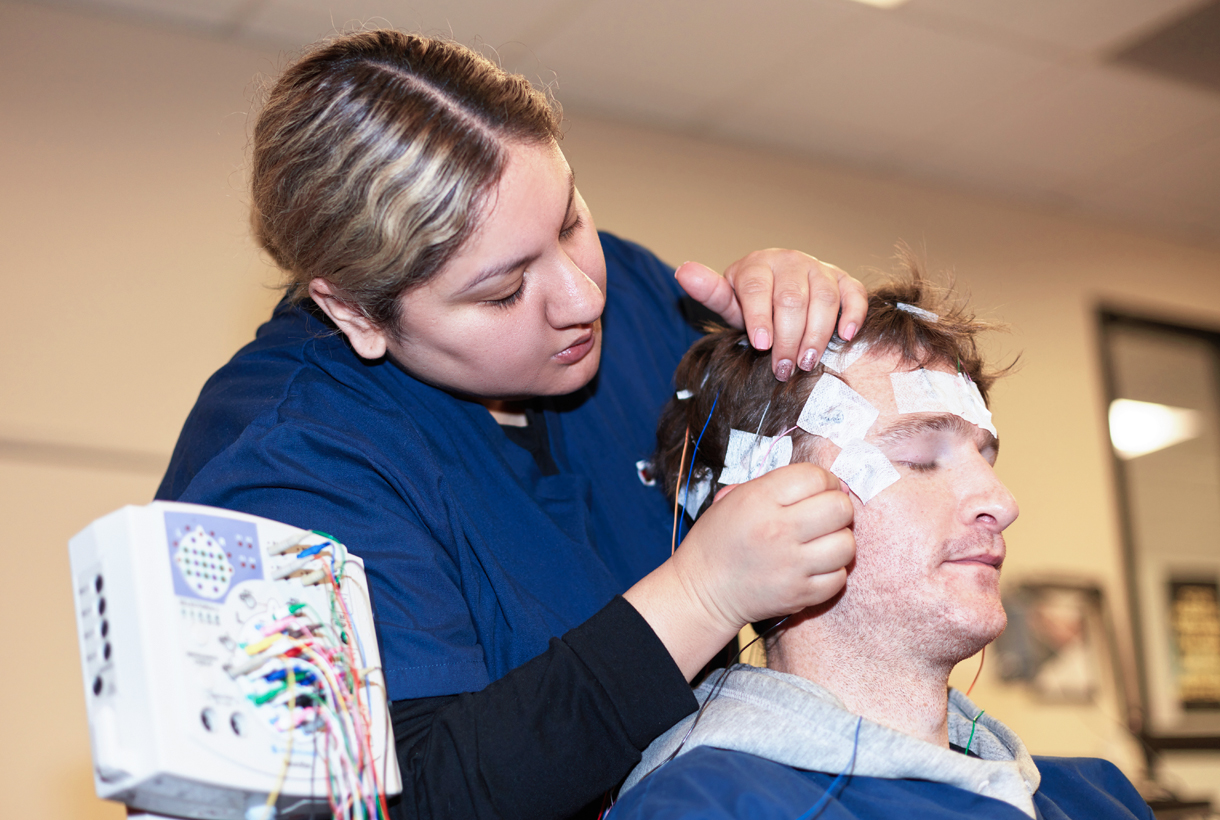
Learn More About: Electroencephalograph Scans
Has anyone ever jokingly told you that you need to have your head examined? Well, now you can! Become an EEG Tech in Midwestern Career College’s Electroneurodiagnostic (END) Technologist program. You’ll join the next generation of EEG technologists, and you’ll get to see your brain waves in action!
Interested in becoming an EEG tech? Request information and find out more about the program.
EEGs measure the electrical activity of the brain and are used in diagnosing and monitoring people with epilepsy, strokes, and other neurological disorders. This painless exam is performed by placing multiple sensors on the head.
Little-Known Facts About EEG Scans
- Widespread Application: Contrary to popular belief, EEGs don’t just detect seizures; they also reveal valuable insights into sleep patterns, cognitive function, and even neurological disorders such as Alzheimer’s and Parkinson’s disease.
- Non-Invasive: Unlike many diagnostic procedures, EEG scans are non-invasive, making them comfortable and safe for patients of all ages. By simply placing electrodes on the scalp, healthcare professionals can obtain invaluable data without the need for injections or incisions, ensuring minimal discomfort and risk.
- Diverse Applications: Beyond clinical settings, EEG technology finds dynamic applications in diverse fields. From enhancing brain-computer interface technologies to aiding in the development of innovative treatments for conditions like depression and epilepsy, EEG scans are at the forefront of cutting-edge research and therapeutic interventions.
Three Things Patients Say About EEG Scans
- Surprising Comfort: Many patients are pleasantly surprised by the comfort and simplicity of EEG scans. Contrary to expectations, the process is painless and straightforward, often accompanied by a sense of relaxation akin to having a gentle massage.
- Curiosity and Engagement: EEG scans often spark curiosity and engagement among patients, igniting their interest in understanding the complexities of brain function. Patients frequently express fascination at witnessing their brain’s electrical activity in real-time, fostering a deeper appreciation for neuroscience and medical technology.
- Empowerment Through Knowledge: Perhaps most importantly, EEG scans empower patients by providing tangible insights into their neurological health. By demystifying brain activity and facilitating informed discussions with healthcare providers, EEG results empower patients to actively participate in their treatment plans and overall well-being.
Find Out More
Curious about how you can contribute to healthcare through this career that blends technology and with the ability to positively impact patient outcomes? Explore our Electroneurodiagnostic (END) Technologist program and see how you can become a part of this impactful profession, or click here to Request Information.

